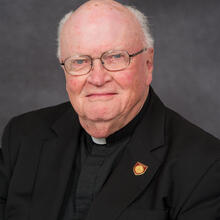Market Maven
This is a biography of the man “who, more than any other, saved the City,” writes the finance historian Niall Ferguson. The city is London, which was “saved” as a world center of finance after World War II and returned to eventual equality with New York and Tokyo in the front ranks of high finance.
The savior is Siegmund Warburg (1902-82), a German Jew and merchant banker whose roots in banking stretched back to the Middle Ages, but his practice of what he would come to regard as both the art and science of banking took off when he settled in London in 1934 as a refugee from Hitler’s Germany.
Any merchant banker’s prime asset is his experience in sizing up situations and measuring risk. Warburg put his knowledge of finance in service to clients who knew, better than he, their own products and services. But he knew literature and history, as well as business, and had an interest in psychology, all of which contributed to his deal-making ability.
Warburg believed in the importance of integration for the advancement of economic activity. So, once established in England, he convinced governments as well as businesses of the strategic importance of cooperation. He earlier had shed his German nationalism and grew comfortable with an international outlook. Ferguson’s access to thousands of Warburg’s letters and documents enabled him, as biographer, to let his subject speak for himself at all stages of his personal and professional development, which contributes to the interest and authenticity of this account. The result is a slow read, but the book sheds helpful light on banking and the personal qualities needed to keep bankers focused on the common good.
At the height of his career, Warburg preferred to think of himself as a physician. He saw banking as a kind of fee-for-service financial consultancy, as opposed to the lending and deposit-taking role of commercial banking with its reward system of interest and commissions. The physician listens to his patient. “Moreover,” wrote Warburg, “a good doctor must have the courage to tell the patient unpleasant facts and to oppose the patient when the patient wants to do things which appear to the doctor to be unwise.” His focus was always “quality of service and the courage to persist in giving well-considered advice, no matter how unpopular that might be at times.”
Merchant bankers are, among many other things, merger brokers. Warburg played this role in 1958-59 as adviser to Reynolds Metals in the so-called aluminum war for control of British Aluminium Company Ltd. Success in the aluminum war put the Warburg firm on the map; it became a leader in the field of hostile takeovers.
There are similarities between merchant banks of old and today’s investment banks that help companies and governments raise money by issuing and selling both equity and debt securities in the capital markets. They also offer financial advisory services for a fee (typically a percentage of the multi-million dollar deals).
Siegmund Warburg went into the family banking business in Germany when hyperinflation was raging. He saw inflation as primarily a political phenomenon caused by “governments that do not have the courage either to reduce their expenditure or to cover it by taxation.” This conviction never left him. Nor did he ever lose his interest in the political side of world economic development. Ferguson writes that “Warburg’s ultimate business objective was always to establish an optimal transatlantic triangle that would link together London, New York, and a European financial centre, whether Hamburg, Frankfurt or Paris.”
He was influential in developing the Eurobond market, and the growth of this market, in Ferguson’s view, “transformed the European capital market, forging entirely new institutional links and networks across national borders.” Ferguson confers on Warburg the title of “father of the Eurobond market” and describes him as a “convinced proponent of European economic and political integration.” Warburg welcomed the process of financial globalization that followed upon the birth of the Eurobond market.
The Warburg work ethic was intense—hosting two client lunches a day in the bank’s offices “in marked contrast to the prandial style at older City firms, where alcohol was plentiful and talking shop all but prohibited.” He insisted on the regularity of directors’ meetings and the “sanctity of written records.” The Warburg system “was based above all on the written word.” The tension at the heart of Warburg’s management style was “between his insistence on regular meetings and written records and his fear of bureaucracy as the enemy of individual initiative.”
Describing Warburg in his 70s as “a man on the wane” whose “perfectionism was slipping into pedantry,” Ferguson sifts through the large collection of aphorisms that Warburg left for posterity and came up with several on the subject of leadership that were written in 1977-78:
- It is one of the preconditions of good leadership to take as little notice as possible of mediocre people.
- Too many people manage; too few people lead.
- The hardest job for a good boss is to find a suitable successor for himself.
No suitable successor was found. After his death, the bank, S. G. Warburg & Co, expanded too aggressively from a merchant bank into an investment bank, had a near merger in 1994 with Morgan Stanley and was purchased by the Swiss Bank Corporation in 1995. S. G. Warburg & Co. disappeared, one observer said, because “those at the helm forgot to follow some of Siegmund’s most basic rules.”
This article also appeared in print, under the headline “Market Maven,” in the August 2, 2010, issue.








